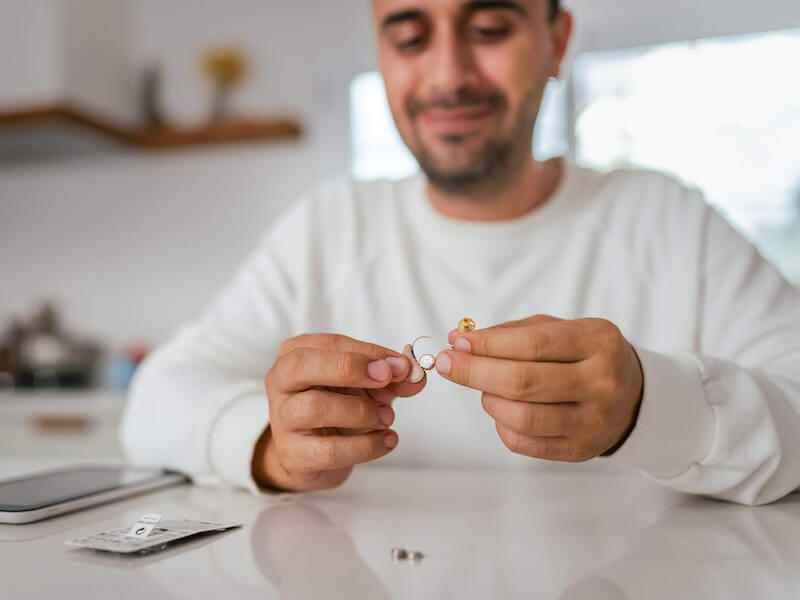You’ve probably heard some ringing in your ears at one point in your life or another. And that ringing has a name: tinnitus. According to most studies, 15-20% of Americans experience tinnitus at any given time. Usually, it’s fleeting. But chronic tinnitus–a ringing that won’t go away–can be uncomfortable and disconcerting. The most common treatment for tinnitus is, thankfully, relatively straightforward: hearing aids.
But how are hearing aids (devices designed to make the world louder) going to help you manage your tinnitus (a sound that’s already a bit too loud)?
Dealing with chronic tinnitus
Chronic tinnitus can develop for a variety of reasons, and some of them are better understood than others. Tinnitus can also sound like a wide variety of subjective and objective noises, from thumping to clanging to metallic buzz-saw sounds–whatever beautiful cacophony your ears can create.
The louder and more intense the sounds are, the more intrusive tinnitus tends to become. Over time, tinnitus can cause declines in mental health, create trouble communicating, and interfere with your daily life.
Hearing aids and tinnitus
While there is often no way to cure the underlying cause of tinnitus, hearing aids have become quite adept at addressing tinnitus symptoms. Hearing aids are able to accomplish this in several ways.
Making the Ringing in Your Ears Harder to Notice
Tinnitus and hearing loss often manifest and in hand. Sometimes they have the same root cause–but sometimes they don’t. In any case, as your hearing declines, your tinnitus may become more prominent. There’s less competition, and that ringing or buzzing can really stand out (it’s like winning American Idol in a year with subpar contestants).
Your hearing aid will be able to turn the ambient volume of the world up. Your tinnitus will once again–to your relief–get lost in the details. This can help you focus on and enjoy the day-to-day.
Canceling out the noise
Of course, there’s a difference between overwhelming your tinnitus and masking your tinnitus. That’s why many modern hearing aids will use a specialized twist on noise-canceling technology to help manage buzzing and ringing. With the help of your hearing specialist, you’ll be able to tune your hearing aid to emit certain white noises that help diminish your tinnitus. Essentially, by producing specific types of sound, your hearing aid can help minimize the volume of your tinnitus symptoms.
This feature isn’t available on all hearing aids, so you’ll have to check with your hearing specialist to find out what will work best for you. Which brings us to our next point.
Time with your hearing specialist
If you’re getting a hearing aid, you need to see a hearing specialist. This is especially essential if you have tinnitus. So one of the most important ways that a hearing aid could help you manage your tinnitus is that it brings you into contact with your hearing specialist.
Your hearing specialist will be able to:
- Determine the severity of your tinnitus symptoms.
- Evaluate whether a hearing aid might help.
- Recommend which type of hearing aid may work for the particular noise you’re hearing.
- Suggest other ways to manage tinnitus
There’s no cure for most forms of chronic tinnitus. But that doesn’t mean you can’t find a treatment. A properly calibrated hearing aid can allow you to fully live your life and experience the joys of the world without being overwhelmed by buzzing, ringing, or any other tinnitus-related sounds. For many people who live with tinnitus, hearing aids are the treatment of choice.



